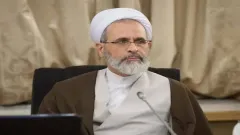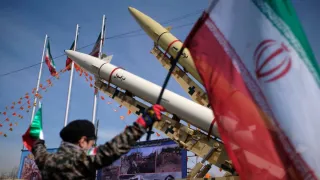Pakistan finds itself at a critical crossroads as the controversial 27th Constitutional Amendment Bill heads to the Senate for a decisive vote. The proposed legislation, which seeks to grant sweeping powers to the country’s army chief, Field Marshal Asim Munir, has ignited a political firestorm. Opposition parties, legal experts, and civil society groups have all voiced grave concerns that the move will cement military dominance over civilian institutions and weaken democratic governance.
For decades, Pakistan’s political landscape has been shaped by a delicate balance between the military establishment and elected governments. The 27th Amendment threatens to disrupt this fragile equilibrium, granting unprecedented authority to the army chief while introducing changes to the judicial system that critics say would erode the independence of the courts. The resulting public outcry has united opposition parties under a single banner, calling for nationwide demonstrations to “protect the Constitution” from what they describe as an authoritarian overreach.
The amendment’s supporters argue that it is designed to streamline governance, eliminate bureaucratic redundancies, and modernize the structure of Pakistan’s armed forces and judiciary. Yet detractors warn that it represents the most significant centralization of power in decades, potentially placing the military above all branches of government. With the Senate expected to vote soon, Pakistan stands on the verge of a historic political confrontation that could shape the country’s democratic future for years to come.
Understanding Pakistan’s 27th Constitutional Amendment
The 27th Constitutional Amendment proposes major structural changes to the country’s governance and legal framework. At its core, the amendment revises Article 243 of the Constitution, formally vesting the office of Chief of Defence Forces in the Chief of Army Staff. This effectively elevates the army chief to a lifelong Field Marshal, a title that comes with sweeping command over all branches of the military.
Legal observers note that the amendment also redefines the judiciary’s powers by creating a new Federal Constitutional Court (FCC). This body would take over cases involving constitutional interpretation, disputes between the federation and provinces, and cases previously heard by the Supreme Court. The creation of the FCC has drawn criticism from lawyers and judges alike, who warn that it will weaken the Supreme Court and concentrate judicial power in a single institution heavily influenced by the executive branch.
Another significant aspect of the amendment involves centralizing certain provincial powers under federal control, which critics argue undermines the spirit of provincial autonomy. The opposition contends that this clause is designed to tighten Islamabad’s grip over provinces that have historically resisted centralized authority, particularly Balochistan and Khyber Pakhtunkhwa.
Why the Amendment Has Sparked Nationwide Protests
The opposition alliance known as the Tehreek Tahafuz Ayeen-i-Pakistan (TTAP) — a coalition of six political parties — has described the 27th Amendment as an “extremely dark and dangerous” change to the Constitution. Led by figures from major political movements including Pakistan Tehreek-e-Insaf (PTI), Pashtunkhwa Milli Awami Party (PkMAP), and the Balochistan National Party-Mengal (BNP-M), the alliance has called for massive nationwide protests to defend Pakistan’s democratic foundations.
Party leaders argue that the amendment effectively dismantles democratic oversight and grants unchecked power to the military establishment. Allama Raja Nasir Abbas, the head of the Majlis Wahdat-e-Muslimeen (MWM), stated that democratic institutions have been “paralysed” and urged citizens to resist the proposed legislation. He called on Pakistanis from all walks of life to rally for the supremacy of the Constitution, warning that silence now would lead to irreversible consequences for the country’s future.
Protests have erupted in major cities including Karachi, Lahore, and Islamabad, with demonstrators carrying banners calling for “civil supremacy” and chanting slogans against military intervention in politics. Police presence has been tightened around government buildings and parliament, as tensions continue to escalate. Opposition leaders have vowed to continue demonstrations until the bill is withdrawn or amended to reflect democratic safeguards.
Impact on Pakistan’s Judiciary and Civil Governance
One of the most contentious elements of the 27th Amendment is its restructuring of the judiciary. By introducing the Federal Constitutional Court, the government seeks to transfer constitutional cases from the Supreme Court to the new body. This move, officials argue, will reduce the backlog of pending cases and make judicial proceedings more efficient. However, legal analysts see it as an attempt to curtail the Supreme Court’s authority and dilute its role as the final arbiter of constitutional interpretation.
Critics also point to the amendment’s proposed change in the retirement age for judges — raising it from 65 to 68 for the new court’s chief justice. They argue that this selective benefit could lead to conflicts of interest and make the judiciary more susceptible to political influence. Prominent legal voices have called the amendment “a deliberate attempt to politicize the judiciary under the guise of reform.”
Furthermore, the amendment’s expansion of the army chief’s powers has been perceived as a direct threat to civilian supremacy. Former defence officials have warned that placing the Chief of Defence Forces in control of all military branches risks upsetting the institutional balance and could have long-term implications for national security and governance.
Opposition Voices and Legal Concerns
Leading opposition figures have strongly denounced the government’s move. PTI chairman Barrister Gohar Ali Khan has argued that the amendment endangers the federation’s unity and undermines judicial independence. PkMAP chairman Mahmood Khan Achakzai has gone further, urging daily protests and calling the amendment “an assault on the soul of Pakistan’s democracy.”
Legal experts, too, have sounded the alarm. Prominent Pakistani barristers have described the bill as “the gravest judicial regression in over three decades.” They warn that the Supreme Court’s diminished role would erode public trust in the judiciary, making it harder for citizens to challenge government actions or seek redress. Others argue that the proposed constitutional changes would make it nearly impossible for future governments to reverse the military’s expanding role.
Retired military officers have also voiced concern, noting that the proposed changes create potential institutional imbalance by elevating one branch of the armed forces above the others. They caution that such centralization of command could disrupt coordination among the military, air force, and navy, ultimately weakening the defence establishment’s operational efficiency.
What Lies Ahead for Pakistan
The government has tabled the 27th Amendment in the Senate, where it seeks a two-thirds majority to pass the bill. If successful, it will move to the National Assembly for another round of voting before reaching the president for final approval. Despite fierce opposition, political insiders suggest that the ruling coalition may have the numbers needed to push the amendment through.
As Pakistan awaits the outcome, the stakes could not be higher. A successful passage of the amendment would mark a historic shift in the country’s power dynamics, potentially setting the stage for prolonged political unrest. Conversely, if opposition protests gain traction and the bill is blocked, it could signal a renewed demand for genuine democratic reform and institutional accountability.
In the coming days, Pakistan’s political destiny may well hinge on this single piece of legislation. Whether the amendment is seen as a step toward administrative reform or a descent into authoritarian rule, one thing is clear — the struggle for constitutional supremacy in Pakistan is far from over.
Conclusion: A Defining Moment for Democracy
As the nation watches its leaders debate the 27th Amendment, Pakistan stands at a defining moment. The controversy surrounding the proposed law has reignited conversations about the balance of power between military and civilian institutions. For many, this is not merely a legislative issue but a question of identity — whether Pakistan will remain a democracy guided by civilian rule or slide deeper into military dominance.
What happens in the Senate today could shape the country’s political and constitutional future for generations. The protests, the voices of dissent, and the calls for unity all point to a society yearning for transparency, accountability, and a government that truly represents the will of the people. As Pakistan faces one of its most critical constitutional debates, the world watches closely to see which path it chooses.
Also Read: Telangana Anthem Writer Ande Sri Passes Away at 64























